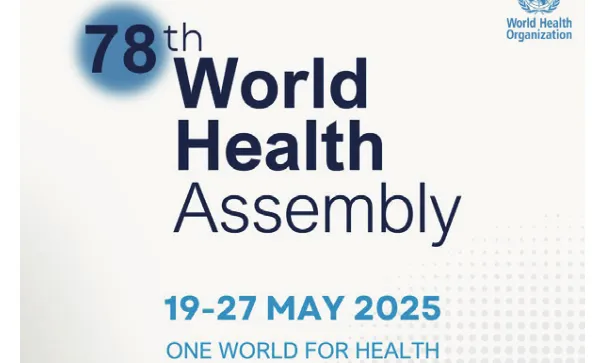New Delhi, May 19: As the Seventy-eighth World Health Assembly (WHA) convenes in Geneva, two urgent issues are set to dominate deliberations: a proposed global pandemic accord and the escalating health impacts of climate change. With high stakes and rising geopolitical tensions, this year’s gathering of the World Health Organization’s (WHO) governing body will test the international community’s ability to cooperate in the face of shared threats. India’s delegation to the Assembly is being led by Union Health Secretary Punya Salila Srivastava, according to reports. The theme for this year’s WHA is “One World for Health”, highlighting the need for unified action across borders.
Pandemic Accord: Tentative Steps Toward Consensus
The most closely watched development will be the progress on a pandemic preparedness accord, a proposed international agreement aimed at ensuring fairer, faster, and more coordinated responses to future global health emergencies. The accord, years in the making, is rooted in the devastating experience of COVID-19, which exposed vast inequities in access to vaccines, treatments, and diagnostics. Nearly seven million people died, and health systems worldwide buckled under pressure.
The proposed agreement seeks to prevent a repeat of such chaos by formalising mechanisms for equitable resource sharing and emergency response coordination. WHO Director-General Dr. Tedros Adhanom Ghebreyesus has called the accord “vital for future generations” and said he remains “cautiously optimistic” that countries will reach consensus during this week’s discussions. However, negotiations remain politically sensitive. Some nations, including the United States, have expressed reservations about provisions related to national sovereignty and intellectual property rights, which they fear could limit autonomy during future crises. If adopted, the accord would mark a significant shift in global health governance, potentially reshaping how nations prepare for and respond to pandemics.
Climate Change: A health emergency in slow motion
Parallel to the pandemic talks, the Assembly will confront another mounting crisis: the health toll of climate change. Described by WHO as an “existential threat,” climate change is already fuelling more frequent disease outbreaks, worsening air quality, and exposing vulnerable populations to heatwaves, floods, and food insecurity. Delegates are expected to finalise a climate-health action plan, building on a resolution adopted in 2024. The draft strategy focuses on integrating climate resilience into public health systems, encouraging adaptation measures, and securing long-term funding for communities most at risk.
“The climate crisis is no longer a distant threat, it’s a daily reality affecting millions,” said a WHO official ahead of the Assembly. “Health systems must be part of the climate conversation.”
The WHA, attended by delegations from all WHO Member States, serves as the UN agency’s primary decision-making forum. Beyond setting policy and approving budgets, the Assembly is often a barometer of international cooperation in health. This year’s session, running from May 19 to 27, will also include discussions on mental health, maternal and child care, and environmental justice issues that disproportionately affect low and middle-income countries. As countries debate, negotiate, and collaborate over this week, the Health Assembly stands as a reminder: global health is only as strong as the weakest link in the chain. Whether in the fight against pandemics or the climate crisis, the path forward requires both ambition and compromise.








